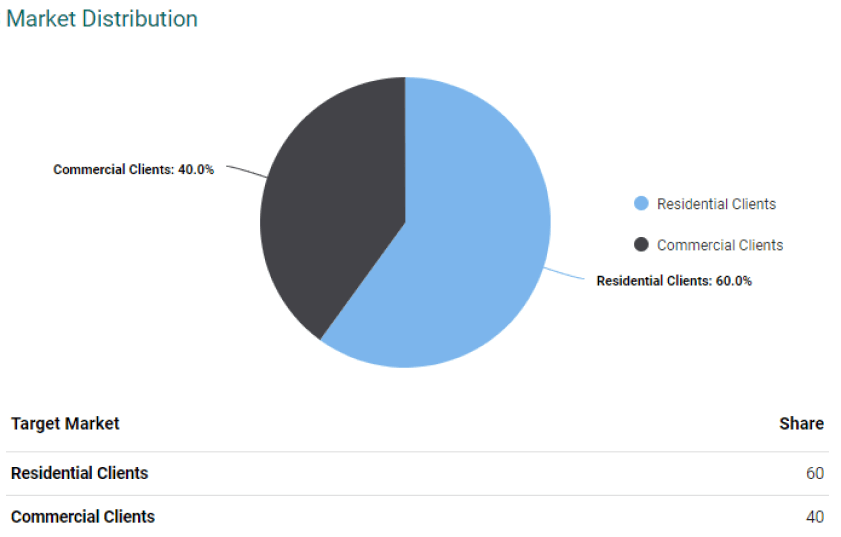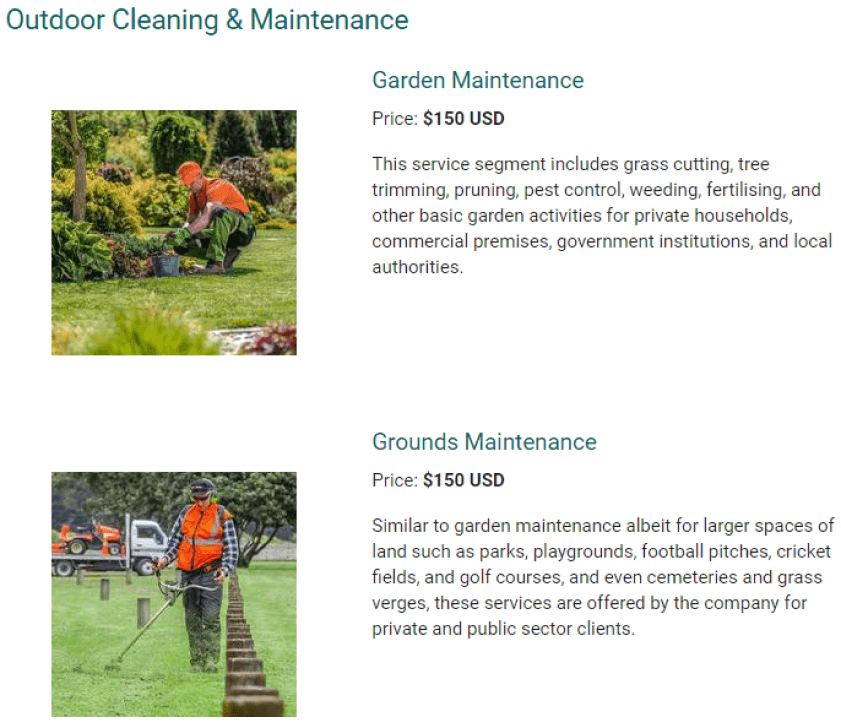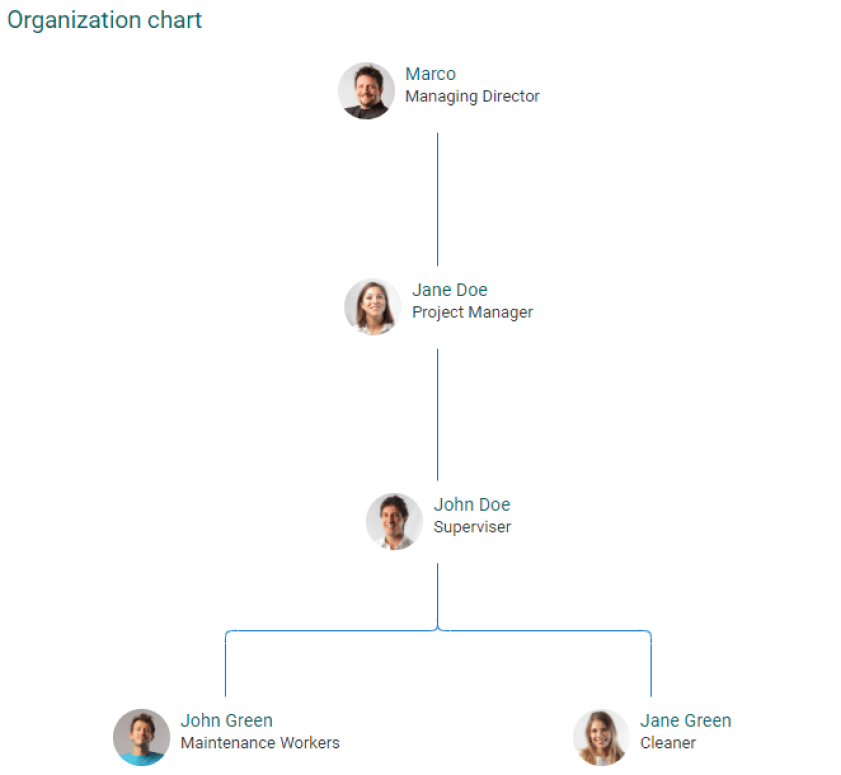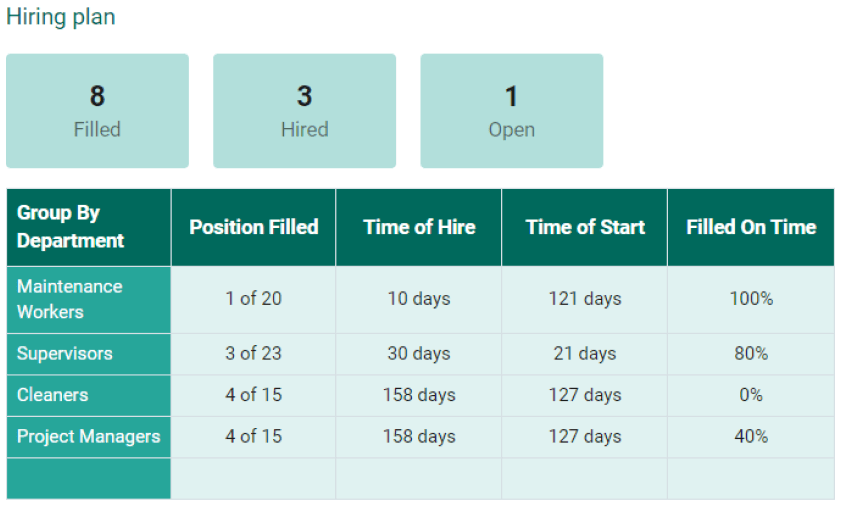
Are you thinking of starting a cleaning services business? We have prepared a solid Cleaning Company Business Plan sample that guides you on every stage of your business plan writing.
Download Template
Ever dreamed of starting your own cleaning services business?
If yes, you’ve come to the right place. It’s time for you to venture into an exciting world of clean and nicely organized spaces.
However, you need to think about resources and funding for navigating the ins and outs of the cleaning business.
Also, you need to identify if there’s a market opportunity to be successful, how many competitors you’ll face, and what potential clients expect from companies like yours.
Surprisingly, a professional business plan will help you answer all these questions. Here’s our sample Cleaning Company Business Plan to give you enough motivation.
We have created this sample business plan for you to get a good idea about how a comprehensive business plan should look alike and what elements you need to include in your business plan.
But before you start writing a business plan for your new cleaning company, consider a few tips and business planning hacks compiled for you.
The commercial cleaning services industry stood at an impressive value of $89.7 billion, and its growth shows that it’s not going to slow down.
Especially after the pandemic, the significance of cleaning has grown. The household cleaners or residential cleaning market is projected to be $40.38 billion by 2025.
And if you have a knack for cleaning and organizing spaces, there’s a golden opportunity to build a thriving business.
Before you go, we have some important things that you have to keep in mind.
Decide what kind of spaces you want to clean. You can go for anything from cleaning outdoor areas, hotels, schools, or office space.
This will help you hire employees who are the best at specific jobs. After all, cleaning different spaces requires a different set of skills and precision.
So, having a niche would help you become a specialist at your work and make your customers avail of your service more often.
Sometimes business is all about going that extra mile. Decide what additional services you can provide apart from the primary ones.
This would also largely depend upon your potential clients and the industry sector you are in.
For example, if you clean office spaces, you can specialize in the organizational services that can set you apart from competitors. Also, this will open opportunities for additional revenue.
Knowing your competitors is crucial. Identify their strengths, weaknesses, and position in the market. It helps you stay ahead of them and have a foresight of what might happen next in the industry.
Hence, maintaining a competitive advantage in this dynamic and rapidly evolving sector is a must.
The cleaning industry is a lot about putting technology to maximum use. So, embrace technological advancements, such as online booking systems and machines for better cleaning.
This will ensure that your business remains competitive and aligns with the evolving needs of your customers. And to keep up you’ll have to change too.
An executive summary is the first and most significant section of any business plan, usually written in the last when the entire plan is ready.
It provides a high-level overview of your cleaning company business plan, offering a quick understanding of your business. So, keep your executive summary clear, concise, and engaging to grab readers’ attention.
This section includes the business name, concept, core values, objectives, marketing plan, management team, and financial projections.
You may start your executive summary with a compelling introduction to the cleaning business, including what is your idea behind this business and what type of business you are running.
Briefly outline your cleaning services and clarify how your services will be different. Describe your target customers, and don’t forget to explain how your cleaning business satisfies their needs.
Name all the key members of your team and provide a summary of your cleaning company’s financial projections for 3-5 years.
Say goodbye to boring templates
Build your business plan faster and easier with AI
Plans starting from $7/month

As the name suggests, the company overview section provides a detailed description of your small business.
It includes the business name, owners, legal structure, location, history, and other such information, providing an in-depth understanding of your company.
You may start this section by providing all the basic information about your cleaning business, such as the name of your company, type of business, legal structure, location, and the reason for choosing that place.
Highlight the owners of your cleaning company, along with their percentage shares and responsibilities. Include vision-mission statements that summarize your business objectives and core principles.
After that, mention your cleaning service business’s history and explain how it came into its recent position. Also, describe your future business goals.
Here is an example of PristineClean’s business goals written using Upmetrics AI-writing assistant:
Next, you may outline some personality and intriguing details like business achievements or recognition, if any.
Starting a cleaning services business requires a strategic roadmap, and the key to developing it lies in a complete industry and market analysis.
This chapter provides valuable insights into your external business environment, including the cleaning industry in which your business operates and its dynamics.
It helps your readers or potential investors to better understand the broader cleaning industry, local market, target customers, emerging market trends, potential challenges, and opportunities.
Here are a few key components your industry and market analysis section must include:
Give a detailed overview of the cleaning industry and determine its market size, growth potential, and target market. Use industry publications, market reports, and statistical data for thorough research.
Also, Identify and describe a few market influencing factors, such as increased hygiene awareness, growing urbanization, eco-friendliness, and changing lifestyles.
Specify your target market and define the attributes of your ideal clients. Try to break down the market into segments based on residential or commercial focus, demographics, and specific cleaning service needs.
Learn more about your customers and define the geographic regions you wish to serve. Recognize the local cleaning services demand and identify whether your cleaning business will focus on certain services.
You may also display your cleaning business’s market distribution as follow s:

Explore all the commercial cleaning businesses in the local market and identify key competitors, including direct and indirect competitors.
To know more about the competitive landscape, analyze their strengths & weaknesses and evaluate their market positioning. From that, pinpoint untapped areas in the market and understand the scope of competitive advantage.
Try to explain how you can offer qualitative cleaning services and develop unique selling propositions(USPs) that set your cleaning business apart.
Conduct a SWOT analysis to evaluate internal & external factors and get better insights.
Stay updated on emerging market trends and recent industry practices to write this section. Observe current innovations in cleaning technology and eco-friendly practices. Also, explore ways to implement online booking systems, automated scheduling, or smart cleaning equipment.
Highlight regulatory considerations for your cleaning services business. It includes local regulations, business licenses or permits, health & safety compliance, and insurance requirements.
Have a look at the PristineClean’s regulatory environment:
Regulatory environment
In [Westminster] and its adjacent areas, the commercial cleaning industry is bound by several regulations to ensure quality, safety, and environmental responsibility:
“[PristineClean Commercial Solutions]” is committed to full compliance with all regulatory requirements, ensuring our clients receive services that are not only superior but also responsible.
This section provides details of your service offerings and elaborates on your service range, description, pricing strategies, and more.
You may start by describing specific cleaning services that you will be going to offer your customers. Also, highlight the overarching benefits and solutions your cleaning service business will serve.
Your cleaning services might be any of the following:
Effectively communicate your cleaning services to the customers by sharing clear pricing plans and service descriptions with project timelines.
Here, you may refer to the below example to draft your own cleaning business’s service offerings:

Next, mention any additional services or customized cleaning service packages based on specific client needs.
The sales and marketing strategy section involves a list of strategies you will use to attract new customers and retain existing ones.
It will help you streamline your marketing tactics and develop effective marketing campaigns to reach your target audience while keeping track of the projected budget and maximizing return on investment.
Here are some of the sales and marketing strategies for your cleaning services business:
Specify the USPs for your business that set you apart from the other cleaning services. Emphasize a few aspects, such as specialty services, environmentally friendly cleaning services, or customizable options.
Create a pricing strategy that is affordable and competitive, yet profitable. Consider proposing discounts, promotions, or cleaning service packages to entice new customers.
Refer to the below example written for a commercial cleaning business:
Pricing Strategy for PristineClean Commercial Solutions
Our pricing structure is meticulously crafted, reflecting the quality we offer while remaining competitive:
Base Pricing: Competitive hourly rate per [sq. ft./service] to ensure accessibility for various businesses. Our gross margin objectives are outlined based on the nature and scale of the cleaning projects:
Promotions: Seasonal discounts or offers for first-time clients to encourage trial.
Packages: Bundled cleaning solutions tailored for businesses of varying scales, providing savings on combined services.
Implement a strong online presence through a user-friendly website and spreads a wider reach. Show your project work with virtual tours and 3D imaging to build trust among potential clients.
Use engaging social media channels to enhance online visibility. Share industry trends, news, and other events on social media to attract potential customers searching for cleaning services.
Always try to build strong relationships with local businesses and real estate agencies. Also, offer special promotions for collaboration. This will expand your reach and generate referrals.
Explain how your commercial cleaning business will build loyalty and retain clients. Try to mention loyalty programs, personalized cleaning services, or various packages.
A well-crafted marketing strategy resonates with potential customers, builds brand loyalty, and helps your business stand out in a competitive cleaning industry.
A management team is crucial to demonstrate your business’s ultimate success in the cleaning industry.
This section introduces the business owners and key managers, along with their roles & responsibilities, qualifications, work experience, and compensation plan.
A dynamic and experienced leadership team can be important to weigh authority and help investors to be confident about your cleaning services business’s idea and vision.
You may start by introducing the cleaning business’s owners/founders and key employees, such as the operations manager, marketing director, cleaners, etc. Highlight their education, professional background, and relevant experience in the industry.
Try to include an organizational chart for the management team that depicts the reporting lines and the decision-making flow.
For your reference, you may have a look at the PristineClean’s organizational structure:

Don’t forget to describe your compensation plan in this section. Include salaries, incentives, or benefits for the management team and cleaning staff.
If your team is lacking, consider mentioning the board of advisors for your business. Also, define their roles and experience in handling cleaning services or small businesses.
Now, it’s time to highlight an impactful description of daily business operations and activities. This section includes key aspects such as staffing, operational processes, and quality control measures.
Operational excellence can be critical to achieving your business goals and optimal results committed to clients.
So, briefly outline operational planning, emphasize how it directly impacts the quality of services, and pique the reader’s interest. Here are a few key factors that your operations plan section must include:
Convey the staffing needs for your cleaning services business, including the number of cleaning professionals required, experience, and responsibilities. Also, mention the employee perks and training programs you will provide.
Here is an illustration of a staffing requirement with the help of Upmetrics:

Summarize the processes and methods you will use to run your cleaning business. It includes the scheduling of appointments, strict cleaning protocols, responsive customer service, communication channels, etc.
Discuss the regular cleaning service inspections, compliance verifications, and ongoing improvement initiatives through client feedback surveys. This will help you maintain customer service excellence.
Describe equipment and cleaning supplies to guarantee that all your cleaners have the resources and tools required for high-quality cleaning services. Include inventory, replenishing supplies, latest cleaning techniques, and technology.
A well-structured and in-depth financial plan is the most crucial and demanding section of any business plan.
In fact, it’s one of the deciding factors for potential investors, banks, or partners to invest or lend money in your cleaning services business.
This section is a detailed blueprint of your company’s financial information and the strategies you will use to reach its long-term goal. It may include all the cash flow & revenue streams, initial startup costs, and earned profits.
This financial forecast is significant in terms of whether you secure funding or not. So, highlight all the below key components in your cleaning business plan:
From the above financial statements, you can identify the funding needs and evaluate the funding resources for your cleaning company, including bank loans, SBA-guaranteed loans, investors, or personal savings.
Need help writing your business plan from scratch? Here you go; download our free cleaning company business plan pdf to start.
It’s a modern business plan template specifically designed for your cleaning company business. Use the example business plan as a guide for writing your own.
The Quickest Way to turn a Business Idea into a Business Plan
Fill-in-the-blanks and automatic financials make it easy.
With Upmetrics, you will receive easy-to-follow steps, 400+ business plan examples, AI support, and a financial forecasting tool to simplify your entire business planning process.
Whether you’re venturing into a new business or expanding an existing one, Upmetrics provides valuable insights and resources you need to create a successful business plan that perfectly aligns with your goals.
So, don’t wait; start planning now!
A professional cleaning company business plan should include the following sections:
You should include below financial information in your business plan:
It is advisable to review and update your cleaning company business plan at least once annually or more often to reflect specific changes in the business environment, service offerings, or market trends.
Indeed, a well-prepared business plan helps you secure funding or bring on new business partners. It offers a clear overview of your business model, strategies, target market, and financial projections. So, this will significantly enhance your chances of securing funding.
Absolutely! A modern business plan template can be easily customized to fit various cleaning businesses, such as commercial cleaning, residential cleaning, or other specialized services. Upmetrics provides customizable templates for your specific business needs and cleaning services.
About the Author
Vinay Kevadiya is the founder and CEO of Upmetrics, the #1 business planning software. His ultimate goal with Upmetrics is to revolutionize how entrepreneurs create, manage, and execute their business plans. He enjoys sharing his insights on business planning and other relevant topics through his articles and blog posts. Read more

Turn your business idea into a solid business plan